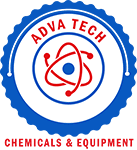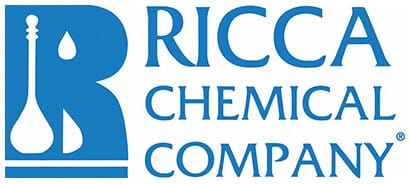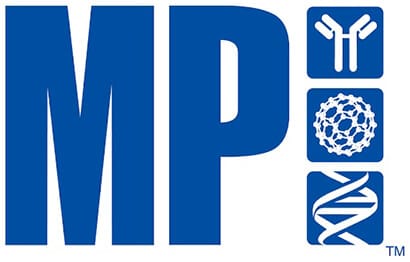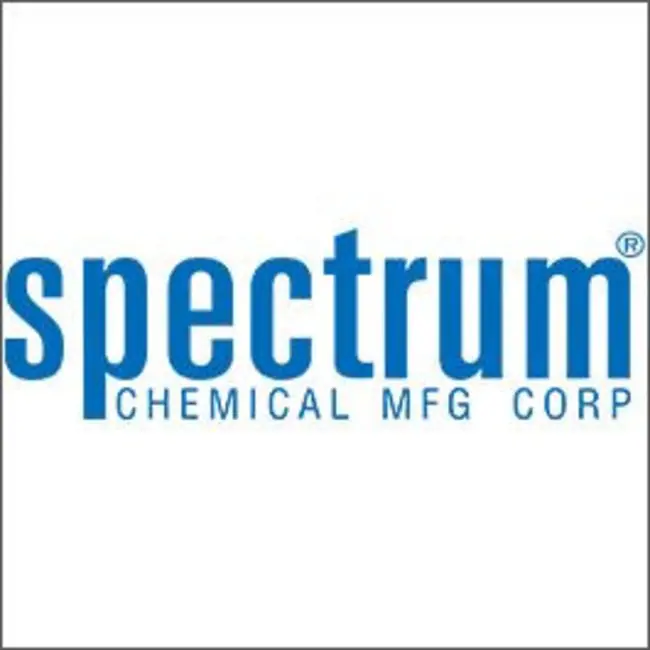Ambient
Showing 14051–14100 of 55601 results
-

Castor Oil, USP
$3,737.28 Add to cart View Product DetailsCastor Oil, USP
-

CAT DIET PURIFIED, GERSHOFF
$898.89 Add to cart View Product DetailsCAT DIET PURIFIED, GERSHOFF
-

CAT DIET PURIFIED, GERSHOFF
$1,567.01 Add to cart View Product DetailsCAT DIET PURIFIED, GERSHOFF
1,362.62 -

CAT DIET PURIFIED, GERSHOFF
$3,409.65 Add to cart View Product DetailsCAT DIET PURIFIED, GERSHOFF
2,964.91 -

CAT DIET, PURIFIED
$495.57 Add to cart View Product DetailsCAT DIET, PURIFIED
-

CAT DIET, PURIFIED
$863.08 Add to cart View Product DetailsCAT DIET, PURIFIED
-

CAT DIET, PURIFIED
$1,877.26 Add to cart View Product DetailsCAT DIET, PURIFIED
1,632.40 -

CAT DIET, PURIFIED
$535.42 Add to cart View Product DetailsCAT DIET, PURIFIED
-

CAT DIET, PURIFIED
$929.86 Add to cart View Product DetailsCAT DIET, PURIFIED
-

CAT DIET, PURIFIED
$2,023.07 Add to cart View Product DetailsCAT DIET, PURIFIED
1,759.19 -

Catalase, Lyophilized
$188.90 Add to cart View Product DetailsCatalase, Lyophilized
-

Catalase, Lyophilized
$675.69 Add to cart View Product DetailsCatalase, Lyophilized
-

Catalase, Lyophilized
$1,355.07 Add to cart View Product DetailsCatalase, Lyophilized
-

Catch Tubes
$78.72 Add to cart View Product DetailsUsed during the silica-based purification procedure to eliminate accidental transfer of silica particles. Included in FastDNA SPIN Kits and in the GENECLEAN SPIN Kit
-
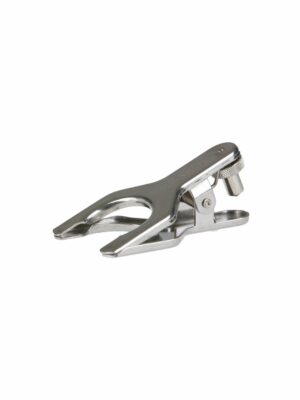
Catchpot clip, KS 35/25, stainless steel, each
$40.88 Add to cart View Product DetailsCatchpot clip, KS 35/25, stainless steel, each
-

Catchpot for oil mist filter & separator
$82.11 Add to cart View Product DetailsCatchpot for oil mist filter & separator
-
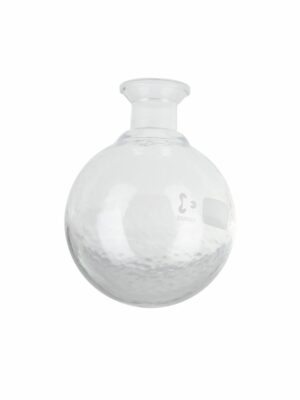
Catchpot, 500mL, coated glass
$201.14 Add to cart View Product DetailsCatchpot, 500mL, coated glass
-

Catechol
$45.44 Add to cart View Product DetailsCatechol
-

Catechol
$131.24 Add to cart View Product DetailsCatechol
-

Catechol
$23.95 Add to cart View Product DetailsCatechol
-

Catechol
$60.55 Add to cart View Product DetailsCatechol
-
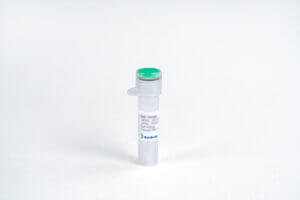
Cathepsin B, His, Human
$142.31 Add to cart View Product DetailsCathepsin B is an enzymatic protein that is a member of the peptidase (or protease) family. Elevated lev- els of cathepsin B occur in a wide variety of disease,causing numerous pathologies including cell death, inflammation, and the production of toxic peptides. For example, neuroscience research suggests that cathepsin B plays a role in inducing epilepsy resulting in a significant amount of cell death. Seizure-induced rats treated with a cathepsin B inhibitor exhibited improved neurological scores and learning ability with reduced neuronal cell death.
-
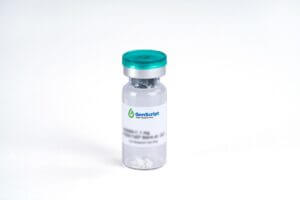
Cathepsin B, Human
$3,540.56 Add to cart View Product DetailsCathepsin B is an enzymatic protein belonging to the peptidase (or protease) families. The protein encoded by this gene is a lysosomal cysteine protease composed of a dimer of disulfide-linked heavy and light chains, both produced from a single protein precursor. It is a member of the peptidase C1 family. At least five transcript variants encoding the same protein have been found for this gene. Cystatin-B / CSTB is an intracellular thiol proteinase inhibitor. Tightly binding reversible inhibitor of cathepsins L, H and B. Cystatin-B / CSTB is able to form a dimer stabilized by noncovalent forces, inhibiting papain and cathepsins l, h and b. Cystatin-B / CSTB is also thought to play a role in protecting against the proteases leaking from lysosomes.
-

Cathepsin B, Human
$780.56 Add to cart View Product DetailsCathepsin B is an enzymatic protein belonging to the peptidase (or protease) families. The protein encoded by this gene is a lysosomal cysteine protease composed of a dimer of disulfide-linked heavy and light chains, both produced from a single protein precursor. It is a member of the peptidase C1 family. At least five transcript variants encoding the same protein have been found for this gene. Cystatin-B / CSTB is an intracellular thiol proteinase inhibitor. Tightly binding reversible inhibitor of cathepsins L, H and B. Cystatin-B / CSTB is able to form a dimer stabilized by noncovalent forces, inhibiting papain and cathepsins l, h and b. Cystatin-B / CSTB is also thought to play a role in protecting against the proteases leaking from lysosomes.
-

Cathepsin L, Human
$2,070.00 Add to cart View Product DetailsCathepsin L is an enzyme. Cathepsin L, a lysosomal endopeptidase expressed in most eukaryotic cells, is a member of the papain-like family of cysteine proteinases. Cathepsin L plays a major role in antigen processing, tumor invasion and metastasis, bone resorption, and turnover of intracellular and secreted proteins involved in growth regulation. Unlike the precursor forms of other papain family members, the 43 kDa pro-cathepsin L itself is secreted from various cells. Pro-cathepsin L is the major excreted protein of malignantly transformed mouse fibroblasts and is also one of the major acidic cysteine proteases in mammalian cells.
-

Cathepsin L, Human
$81.94 Add to cart View Product DetailsCathepsin L is an enzyme. Cathepsin L, a lysosomal endopeptidase expressed in most eukaryotic cells, is a member of the papain-like family of cysteine proteinases. Cathepsin L plays a major role in antigen processing, tumor invasion and metastasis, bone resorption, and turnover of intracellular and secreted proteins involved in growth regulation. Unlike the precursor forms of other papain family members, the 43 kDa pro-cathepsin L itself is secreted from various cells. Pro-cathepsin L is the major excreted protein of malignantly transformed mouse fibroblasts and is also one of the major acidic cysteine proteases in mammalian cells.
-

Cathepsin L, Human
$266.51 Add to cart View Product DetailsCathepsin L is an enzyme. Cathepsin L, a lysosomal endopeptidase expressed in most eukaryotic cells, is a member of the papain-like family of cysteine proteinases. Cathepsin L plays a major role in antigen processing, tumor invasion and metastasis, bone resorption, and turnover of intracellular and secreted proteins involved in growth regulation. Unlike the precursor forms of other papain family members, the 43 kDa pro-cathepsin L itself is secreted from various cells. Pro-cathepsin L is the major excreted protein of malignantly transformed mouse fibroblasts and is also one of the major acidic cysteine proteases in mammalian cells.
-

Cation Calibration Standard 2 in HNO3
$176.00 Add to cart View Product DetailsCation Calibration Standard 2 in HNO3
-

Cation Calibration Standard 2 in HNO3
$421.91 Add to cart View Product DetailsCation Calibration Standard 2 in HNO3
-

Cationic Starch, Nitrogen 0.3 Percent
$179.03 Add to cart View Product DetailsCationic Starch, Nitrogen 0.3 Percent
-

Cationic Starch, Nitrogen 0.3 Percent
$278.48 Add to cart View Product DetailsCationic Starch, Nitrogen 0.3 Percent
-

Cationic Starch, Nitrogen 0.3 Percent
$452.24 Add to cart View Product DetailsCationic Starch, Nitrogen 0.3 Percent
-

Cationic Starch, Nitrogen 0.4 Percent
$179.03 Add to cart View Product DetailsCationic Starch, Nitrogen 0.4 Percent
-

Cationic Starch, Nitrogen 0.4 Percent
$277.17 Add to cart View Product DetailsCationic Starch, Nitrogen 0.4 Percent
-

Cationic Starch, Nitrogen 0.4 Percent
$537.13 Add to cart View Product DetailsCationic Starch, Nitrogen 0.4 Percent
-

CAY10562
$76.36 Add to cart View Product DetailsCAY10562
-

CAY10562
$138.64 Add to cart View Product DetailsCAY10562
-

CAY10563
$76.36 Add to cart View Product DetailsCAY10563
-

CAY10563
$138.64 Add to cart View Product DetailsCAY10563
-

CAY10564
$76.36 Add to cart View Product DetailsCAY10564
-

CAY10564
$138.64 Add to cart View Product DetailsCAY10564
-

CAY10565
$76.36 Add to cart View Product DetailsCAY10565
-

CAY10565
$138.64 Add to cart View Product DetailsCAY10565
-
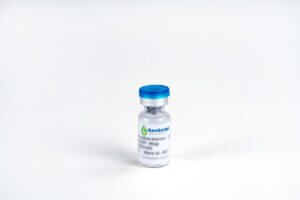
CBP Tag Antibody, mAb, Mouse
$87.98 Add to cart View Product DetailsGenScript CBP Tag Antibody, mAb, Mouse recognizes CBP-tagged proteins.
-

CBP-tag Antibody, pAb, Rabbit
$87.98 Add to cart View Product DetailsGenScript CBP-tag Antibody recognizes CBP tagged fusion proteins.
-

CCL25, Mouse
$2,518.50 Add to cart View Product DetailsCCL25 is a new member of the CC family chemokine. It is also called Thymus-expressed chemokine (TECK) because it is restricted produced by thymus and intestine. Especially, the dendritic cells derived from thymus but not bone marrow had been identified to be the source of CCL25. By binding with CCR9, it elicits its effects of chemotactic for thymocytes, macrophages, and dendritic cells. Additionally, CCL25 takes part in regulating the development of T-cells.
-

CCL25, Mouse
$521.81 Add to cart View Product DetailsCCL25 is a new member of the CC family chemokine. It is also called Thymus-expressed chemokine (TECK) because it is restricted produced by thymus and intestine. Especially, the dendritic cells derived from thymus but not bone marrow had been identified to be the source of CCL25. By binding with CCR9, it elicits its effects of chemotactic for thymocytes, macrophages, and dendritic cells. Additionally, CCL25 takes part in regulating the development of T-cells.
-
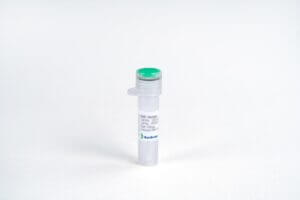
CD160 Fc Chimera, Human
$1,035.00 Add to cart View Product DetailsCD160 is a glycosylphosphatidylinositol-anchored Ig domain protein that is expressed on almost all intestinal intraepithelial lymphocytes (IELs), γδ T (gamma delta T) cells, NK (natural killer) cells, and a minor subset of CD4+ and CD8+ T cells. In terms of function, work has centered on the role of CD160 in enhancing NK or CD8 T cell activation. Such effects have been attributed to the ability of CD160 to bind classical and nonclassical MHC class I molecules, although with apparent low affinity, requiring clustering of MHC class I molecules or overexpression of CD160 or MHC class I for detection of the interaction.
-

CD160 Fc Chimera, Human
$34.50 Add to cart View Product DetailsCD160 is a glycosylphosphatidylinositol-anchored Ig domain protein that is expressed on almost all intestinal intraepithelial lymphocytes (IELs), γδ T (gamma delta T) cells, NK (natural killer) cells, and a minor subset of CD4+ and CD8+ T cells. In terms of function, work has centered on the role of CD160 in enhancing NK or CD8 T cell activation. Such effects have been attributed to the ability of CD160 to bind classical and nonclassical MHC class I molecules, although with apparent low affinity, requiring clustering of MHC class I molecules or overexpression of CD160 or MHC class I for detection of the interaction.
-

CD160 Fc Chimera, Human
$103.50 Add to cart View Product DetailsCD160 is a glycosylphosphatidylinositol-anchored Ig domain protein that is expressed on almost all intestinal intraepithelial lymphocytes (IELs), γδ T (gamma delta T) cells, NK (natural killer) cells, and a minor subset of CD4+ and CD8+ T cells. In terms of function, work has centered on the role of CD160 in enhancing NK or CD8 T cell activation. Such effects have been attributed to the ability of CD160 to bind classical and nonclassical MHC class I molecules, although with apparent low affinity, requiring clustering of MHC class I molecules or overexpression of CD160 or MHC class I for detection of the interaction.
